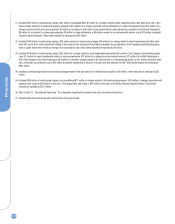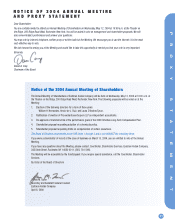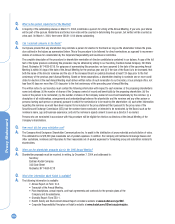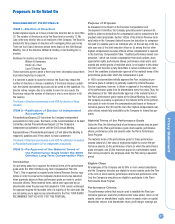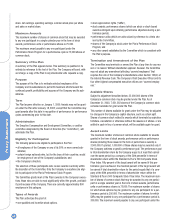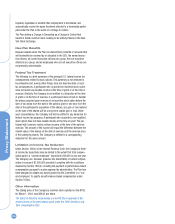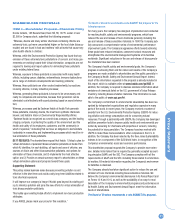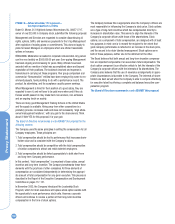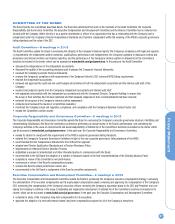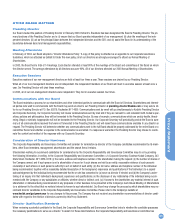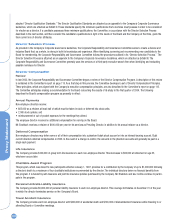Kodak 2003 Annual Report Download - page 90
Download and view the complete annual report
Please find page 90 of the 2003 Kodak annual report below. You can navigate through the pages in the report by either clicking on the pages listed below, or by using the keyword search tool below to find specific information within the annual report.
Proxy Statement
90
ticipants, regardless of whether their employment is terminated, will
automatically receive the same treatment afforded to a terminated partici-
pant under the Plan in the event of a Change In Control.
The Plan defines a Change In Ownership as a Change In Control that
results in Kodak common stock ceasing to be actively traded on the New
York Stock Exchange.
New Plan Benefits
Because awards under the Plan are discretionary, benefits or amounts that
will hereinafter be received by or allocated to the CEO, the named execu-
tive officers, all current executive officers as a group, the non-executive
directors as a group, and all employees who are not executive officers are
not presently determinable.
Federal Tax Treatment
The following is a brief summary of the principal U.S. federal income tax
consequences related to stock options. This summary is not intended to
be exhaustive and, among other things, does not describe state or local
tax consequences. A participant who is granted an incentive stock option
does not realize any taxable income at the time of grant or at the time of
exercise. Similarly, the Company is not entitled to a deduction at the time
of grant or at the time of exercise. If a participant does not sell or transfer
the shares acquired upon exercise of an incentive stock option before the
later of two years from the date of the option’s grant or one year from the
date of the participant’s acquisition of the shares, any gain or loss realized
on the sale of the shares will be a long-term capital gain or loss. Under
such circumstances, the Company will not be entitled to any deduction for
federal income tax purposes. A participant who is granted a non-qualified
stock option does not have taxable income at the time of grant. The par-
ticipant will, however, realize ordinary income at the time of the option’s
exercise. The amount of the income will equal the difference between the
market value of the shares on the date of exercise and the exercise price
of the underlying shares. The Company is entitled to a corresponding
deduction for the same amount.
Limitation on Income Tax Deduction
Under Section 162(m) of the Internal Revenue Code, the Company’s feder-
al income tax deductions may be limited to the extent that total compen-
sation paid to a “covered employee” exceeds $1,000,000 in any one year.
The Company can, however, preserve the deductibility of certain compen-
sation in excess of $1,000,000 provided it complies with the conditions
imposed by Section 162(m), including the payment of performance-based
compensation pursuant to a plan approved by shareholders. The Plan has
been designed to enable any award granted by the Committee to a “cov-
ered employee” to qualify as performance-based compensation under
Section 162(m).
Other Information
The closing price of the Company’s common stock reported on the NYSE
for March 1, 2004, was $29.03 per share.
The Board of Directors recommends a vote FOR the re-approval of the
material terms of the performance goals under the 2000 Omnibus Long-
Term Compensation Plan.


